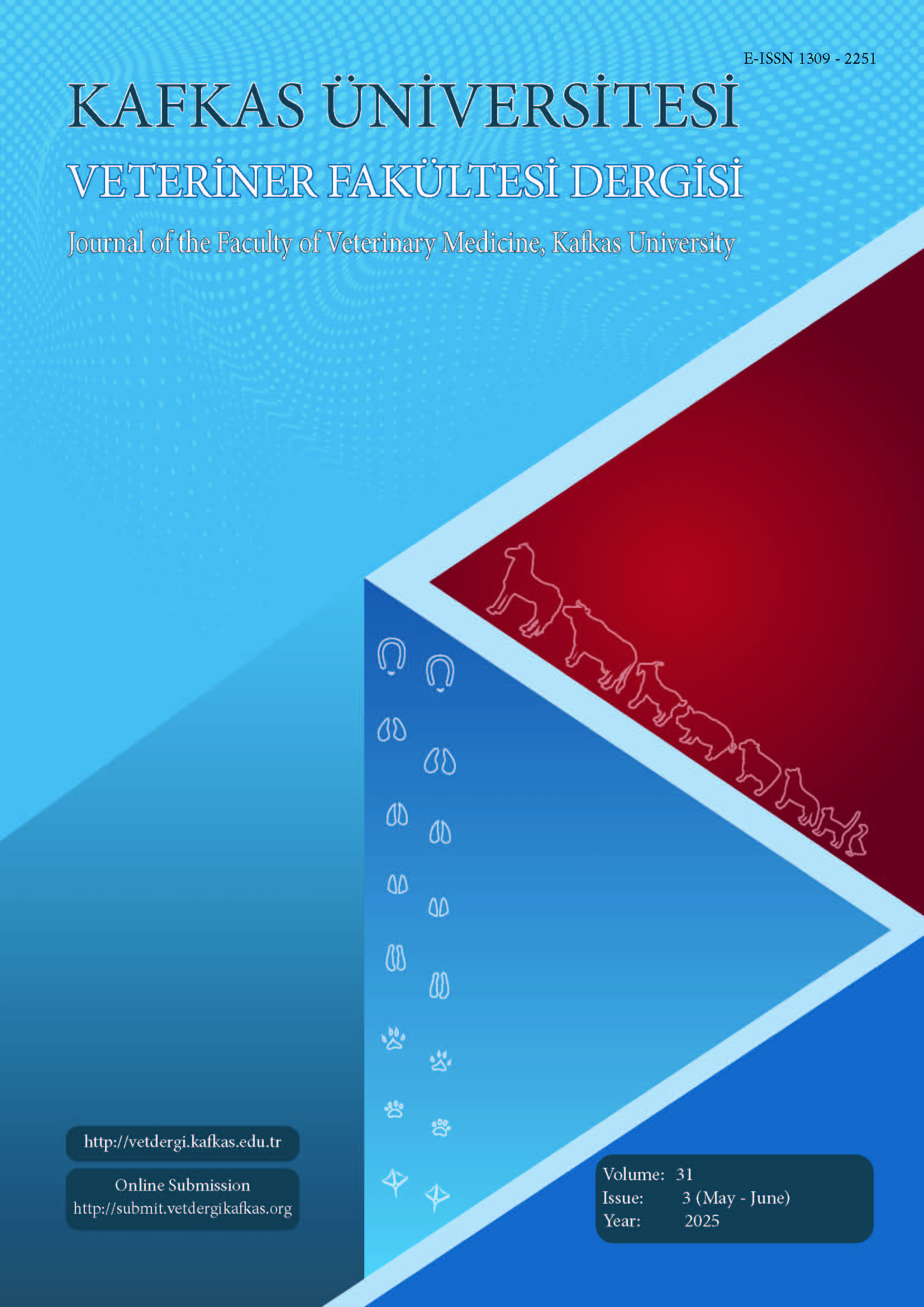
This journal is licensed under a Creative Commons Attribution-NonCommercial 4.0 International License
Kafkas Üniversitesi Veteriner Fakültesi Dergisi
2025 , Vol 31 , Issue 3
Epidemiology and Public Health Importance of Bovine Salmonellosis
1Department of Veterinary Preventive Medicine, College of Veterinary Medicine, Qassim University, 51452 Buraydah, SAUDI ARABIA
DOI :
10.9775/kvfd.2025.34126
Bovine salmonellosis caused by Salmonella enterica subsp. enterica serovar Dublin
(S. Dublin) is a significant public health and economic concern globally. It leads to
severe health issues in cattle, including enteritis, septicaemia, and abortion, with high
mortality rates, especially in newborn calves. The disease not only impacts the wellbeing
of the animals but also results in substantial economic losses through treatment
costs, reduced milk production, and potential outbreaks. The transmission of S. Dublin
is primarily through contaminated food, water, and environmental exposure, with the
faecal route being the most significant mode of spread. The pathogenesis of S. Dublin
involves complex interactions between the bacteria and the host immune system,
with the bacteria capable of persisting in the herd as carriers, further complicating
control measures. Effective control strategies are critical to minimizing its spread, and
understanding the epidemiology, clinical signs, and diagnostic methods is key. This
review demonstrates the public health importance, clinical manifestations, economic
importance and diagnostic techniques of bovine salmonellosis.
Keywords :
Bovine, Epidemiology, Food, Public health, Salmonellosis, S. Dublin











